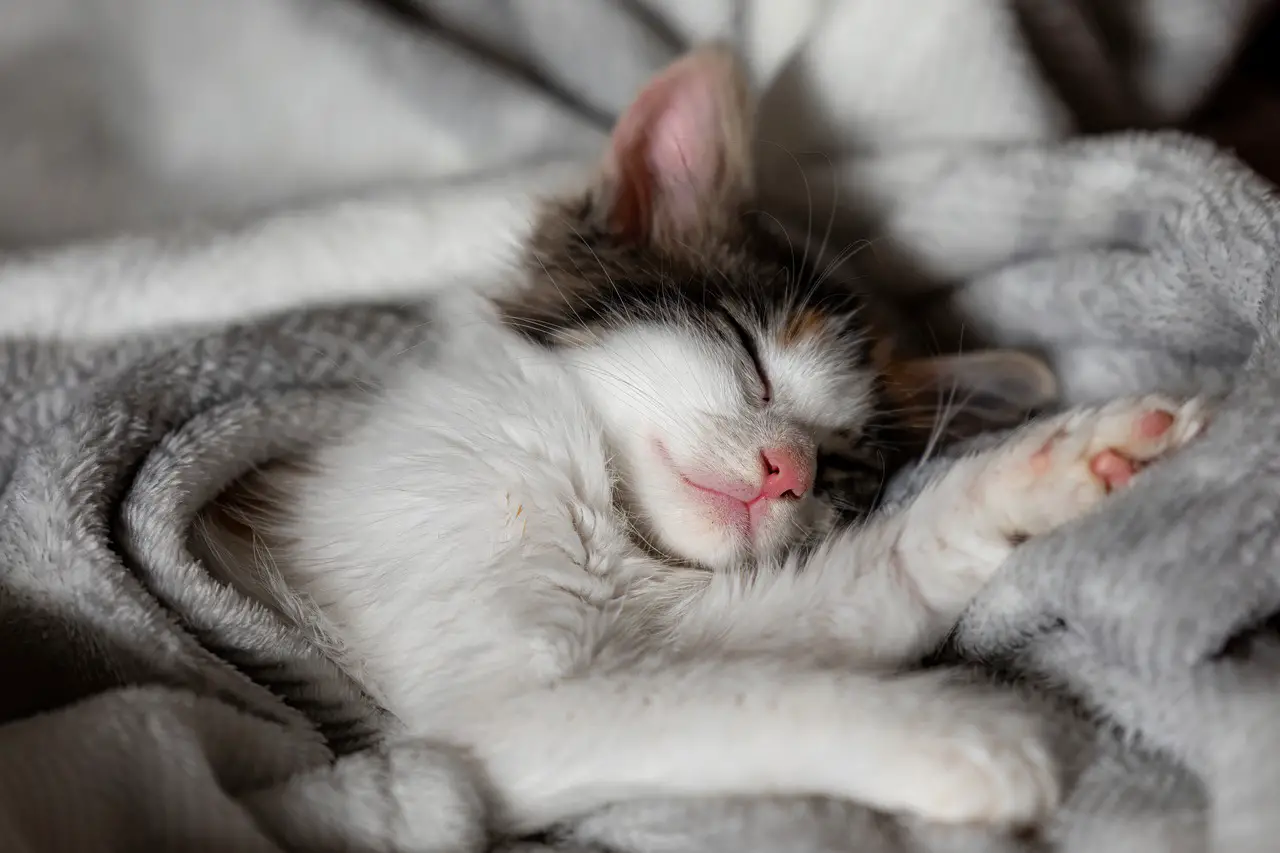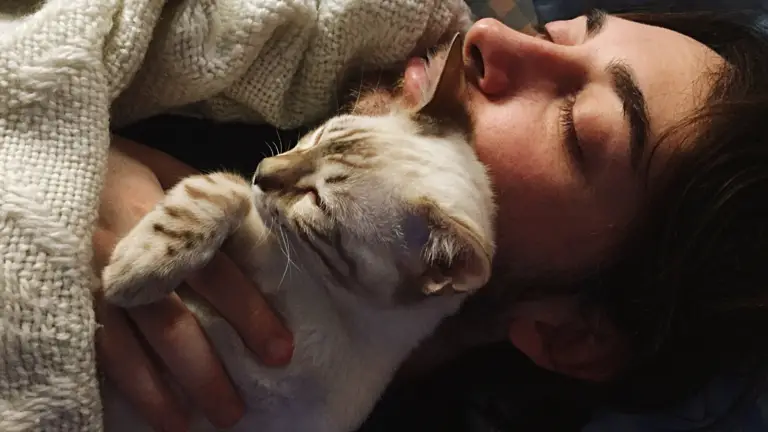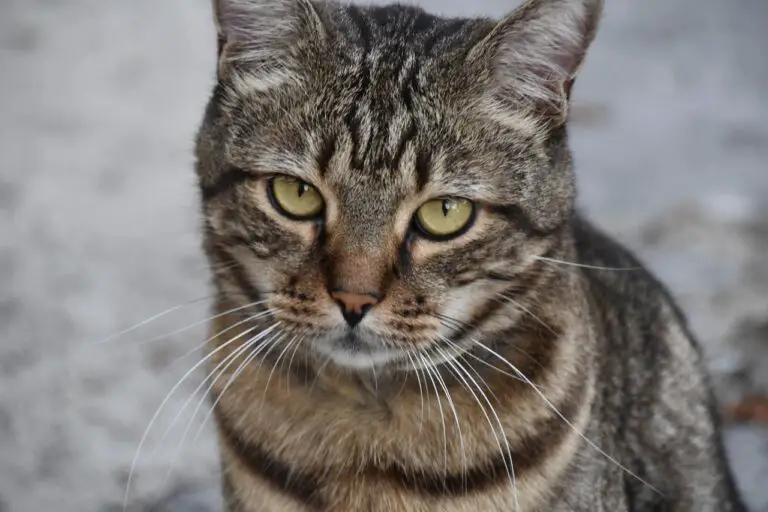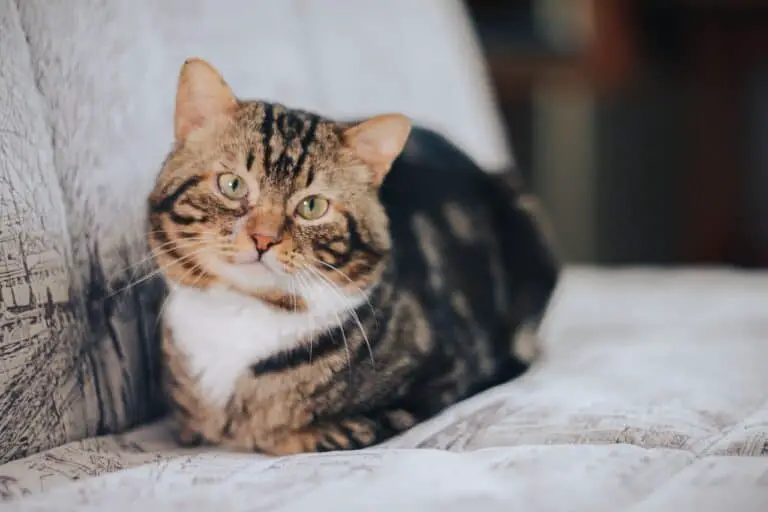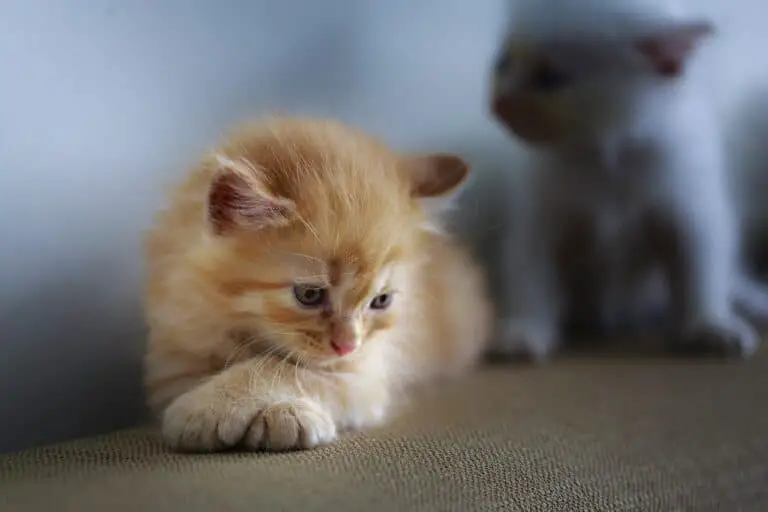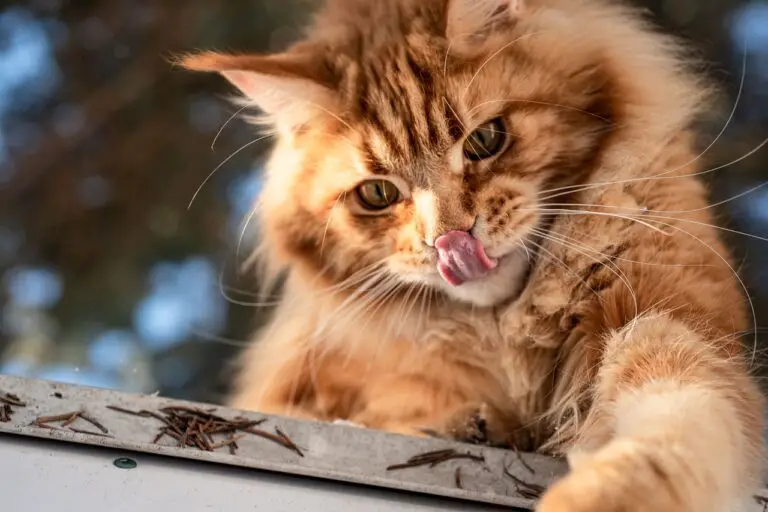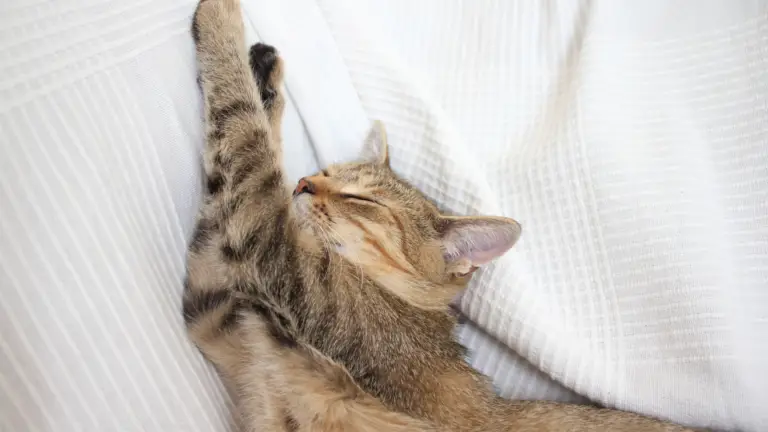DO CATS PURR TO EACH OTHER? HOW TO DECIPHER THE SOUND
Do cats purr to each other? Of course, we are all familiar with cats’ purrs, and we enjoy them every day when petting our cats. But are they purring only when humans are around, or do they also purr among their peers?
Cats purr with each other and with humans to convey different emotions. Cats purr for all kinds of reasons, and it’s something they begin to do when they are very young kittens. They purr because they are happy, want food or attention, and are stressed or ill.
Let’s see why cats purr with other cats.
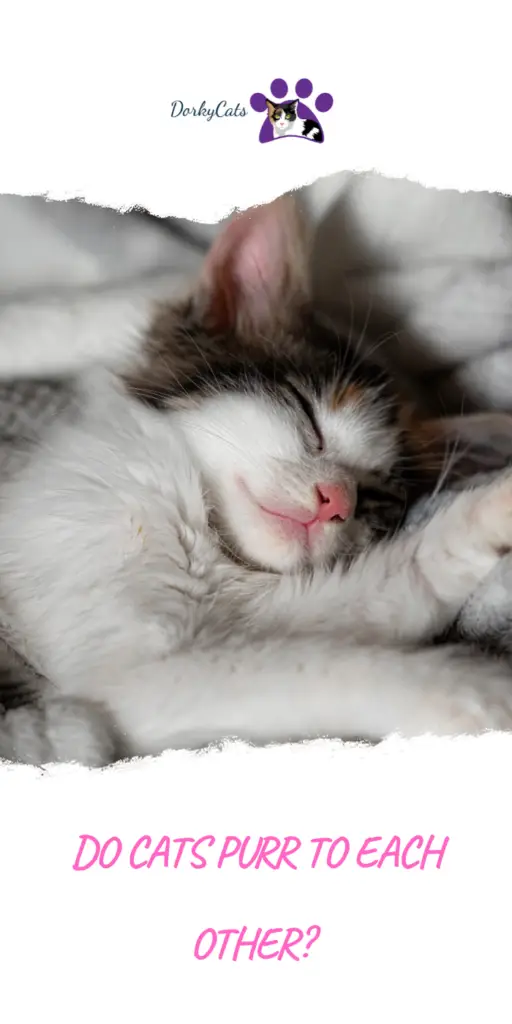
DO CATS PURR TO EACH OTHER?
There is no better feeling for cat lovers than having our feline friend curl up in our laps and start to purr. But, of course, most cat owners will sit still for hours just to avoid waking a contended, purring cat.
But while you’re sitting there, you might be wondering if that purring is because you are there, or is it something cats do with each other when we’re not around?
Cats make various vocalizations, from meowing, chattering, and even hissing. A purring cat is trying to communicate with you or other cats. Whether they’re doing it to get a response from you or just as a reaction to happiness, it’s another tool they use to tell us what’s going on.
And having a happily purring cat on your lap is always a good thing.
WHAT IS A PURR, AND HOW DO CATS PURR?
A cat’s purr starts as a neurological message from the brain, which stimulates the muscles of the larynx to vibrate. Then, as the cat inhales and exhales, the vocal cords separate, and the vibration results in the purring noise.
The action of purring is thought to be both voluntary and involuntary, meaning cats can control when it happens, but it may also be an automatic response related to a stimulus.
WHY DO CATS PURR WHEN YOU PET THEM?
Cats begin to purr soon after they are born, and scientists believe it may be a kitten’s way of telling their mother where they are. But unfortunately, kittens are born both deaf and blind and so have no other way to communicate with their moms.
A purr also happens when kittens suckle, perhaps to let the mother know they are eating.
Science has also shown that a cat can produce different kinds of purrs. The sound produced when kittens (or cats) are hungry tends to have a higher-pitched sound incorporated and is different than a happy purr from a sleepy lap cat.
REASONS WHY A CAT PURRS
Most humans associate a feline’s purr as a sign that they are happy. After all, cats purr when we pet them, hold them, or generally show them affection. But they will also purr when they want something from us.
The purr itself could be the cats’ way of asking humans to keep up whatever is making them happy.
Cats will also purr with each other as a way of communication. For example, they will purr while grooming each other or during play. In addition, they may purr when they are eating or even while they’re alone. It’s worth noting, however, that cats have very different personalities. Some cats may not purr very often, while others may seem to purr non-stop.
Cats will purr when they are stressed, sick, or even when they are close to death. Some researchers believe this could be because the vibrations caused by purring have healing qualities.
Or it could be a way of tricking predators into thinking everything is ok. A sick cat in the wild may be in danger from predators, so they may purr to hide any signs of weakness.
In summary, cats purr because:
- They are happy
- They want something from a human
- You are showing affection to them
- They are eating
- They are grooming other cats or being groomed
- They are stressed
- They are sick
CATS’ PURRING EFFECT ON HUMANS – WHAT ARE THEY?
It has been known that cats’ purr is beneficial to humans for a long time. The first thing that any cat owner can observe is the soothing effect of having a purring cat on the chest.
But is it only an impression, or is it really beneficial? Science tells us that cat purrs have a frequency between 25 and 140hz, which is a similar frequency that helps heal bones, wounds, and other body damages.
In addition, purrs are responsible for releasing endorphins not only in cats but also in humans. The benefits of cats’ purring in humans are:
- Lower stress
- Get rid of migraines
- Breathe better
- Support bone health
- Lower blood pressure
Cats use their purring ability to heal their own bodies and to heal other cats. This is why you can find purring cats lying near sick cats; they want to help the other cat heal.
But, regardless of what the science tells us, there is nothing that can replace the happiness of having a purring cat on the chest or the lap. Happiness is what helps a person to go through difficult times.
FREQUENTLY ASKED QUESTIONS
Why do cats purr when they are dying?
Cats purr before dying because they want to cover their weakness and because they want to soothe their own bodies. It is a way to spend their last moments as better as possible.
Why does my cat purr when I pet her?
Cats purr if you pet them because they are happy and enjoy your attention and touch. They are also telling you to continue to pet them because they like it.
Do big cats purr?
Lion’s cubs can purr, and so cheetahs and leopards. Although most articles you read on the web tell you that big cats can’t purr, you can find many videos of those magnificent felines purring like small cats on YouTube.
How to tell if a cat is purring in pain?
You can tell that your cat is purring in pain because he behaves differently from the eyes and body posture. For example, if you see your cat vocalizing, not eating, complaining when you touch him, or other significant changes, it might be that he is in pain when he purrs.
So cats purr when they want something?
Cats purr to humans when they want something. Most cats’ owners are familiar with their cats waking them up purring and storming on them because they are hungry. They also purr because they want you to pet them and cuddle with them.
Why do cats purr when you play with them?
Cats purr when you play with them because they are happy and want to play more. They want your attention and want you to pet them and play their favorite games.
Do cats purr when alone?
Cats can purr when alone for other reasons than just wanting your attention. For example, cats can purr when alone because of other cats near them or soothe themselves.
Why does my cat purr when next to me?
Your cat can purr next to you because they want your attention and possibly get some scratches and pets. However, they are content that you are there next to them and enjoy your company.

